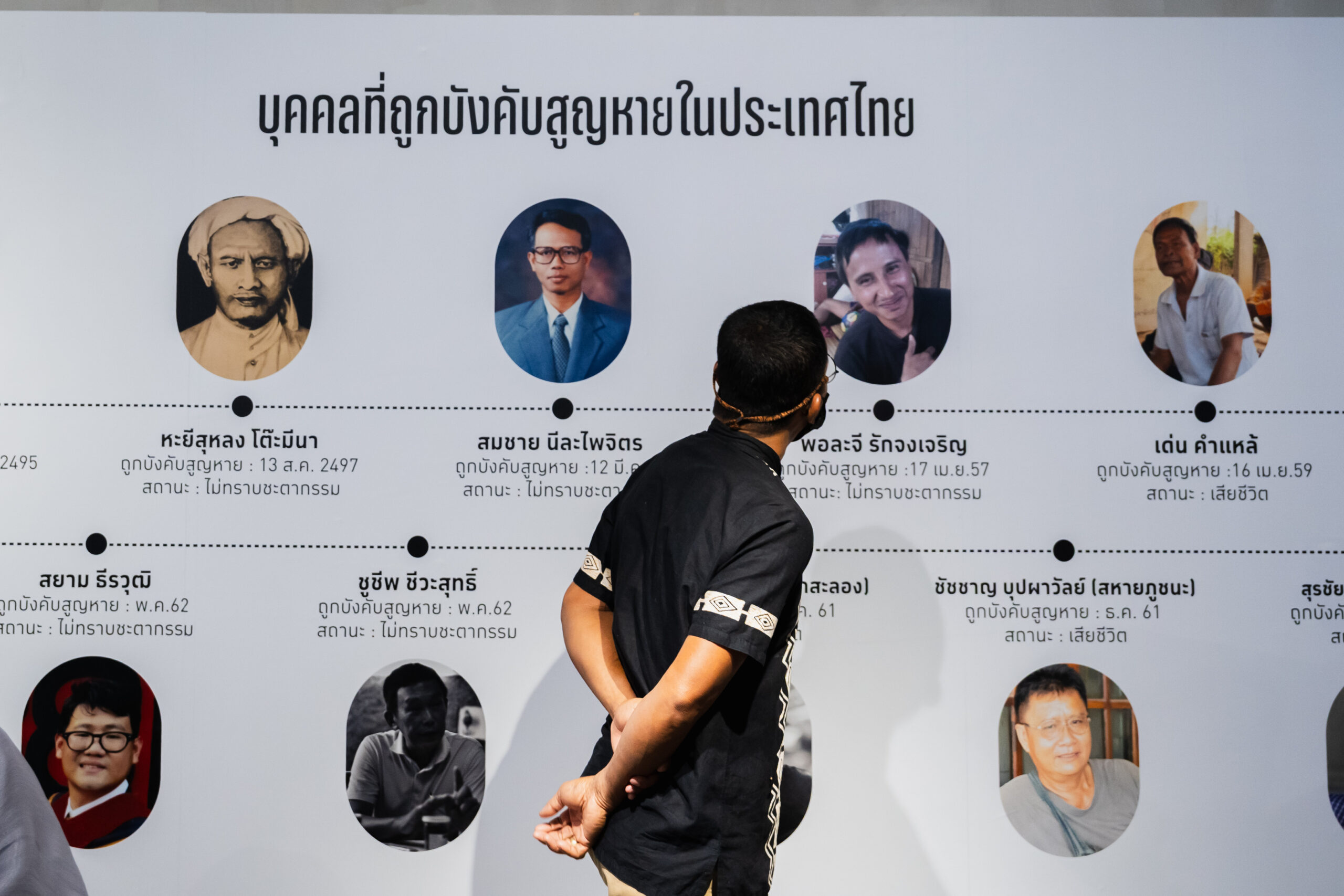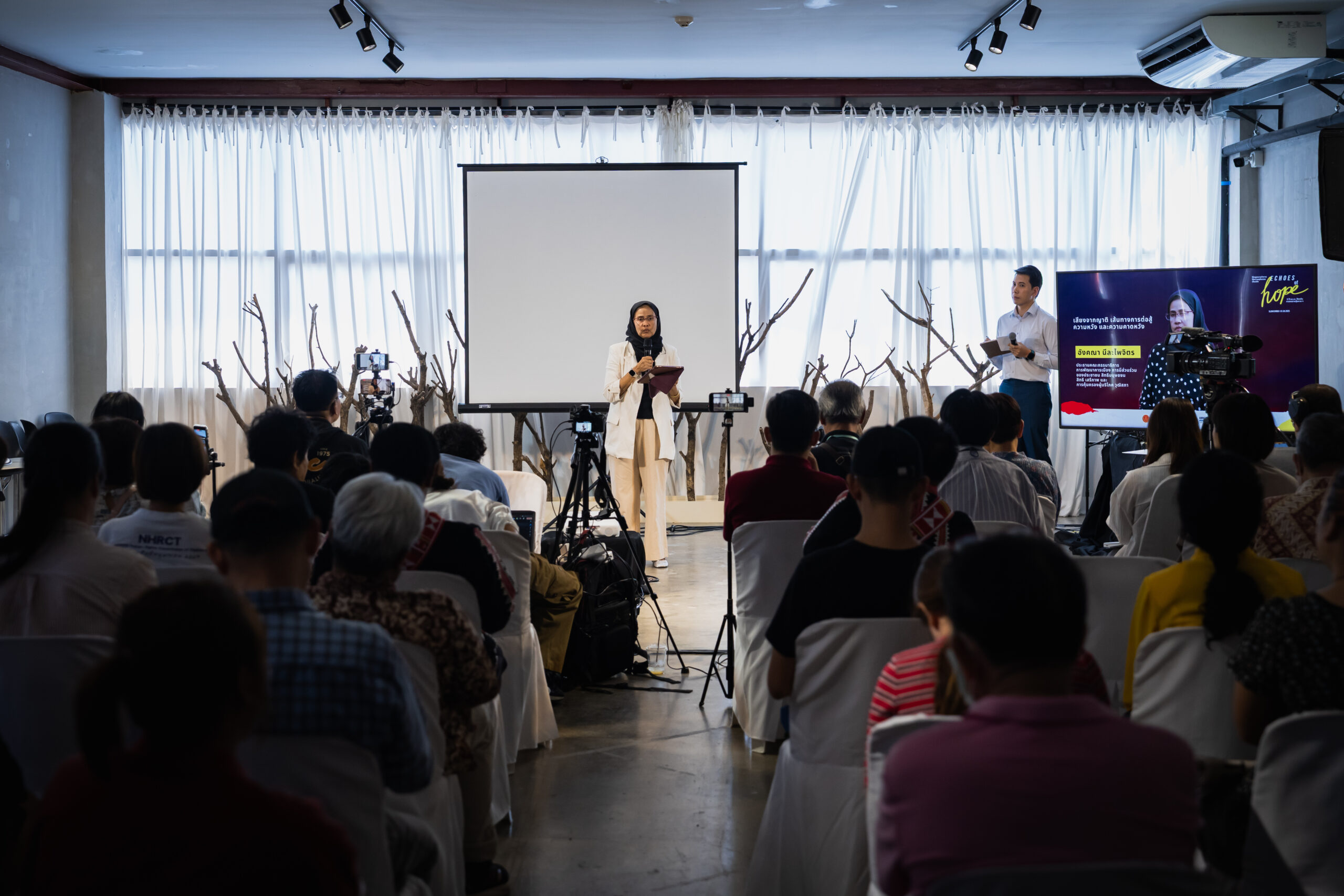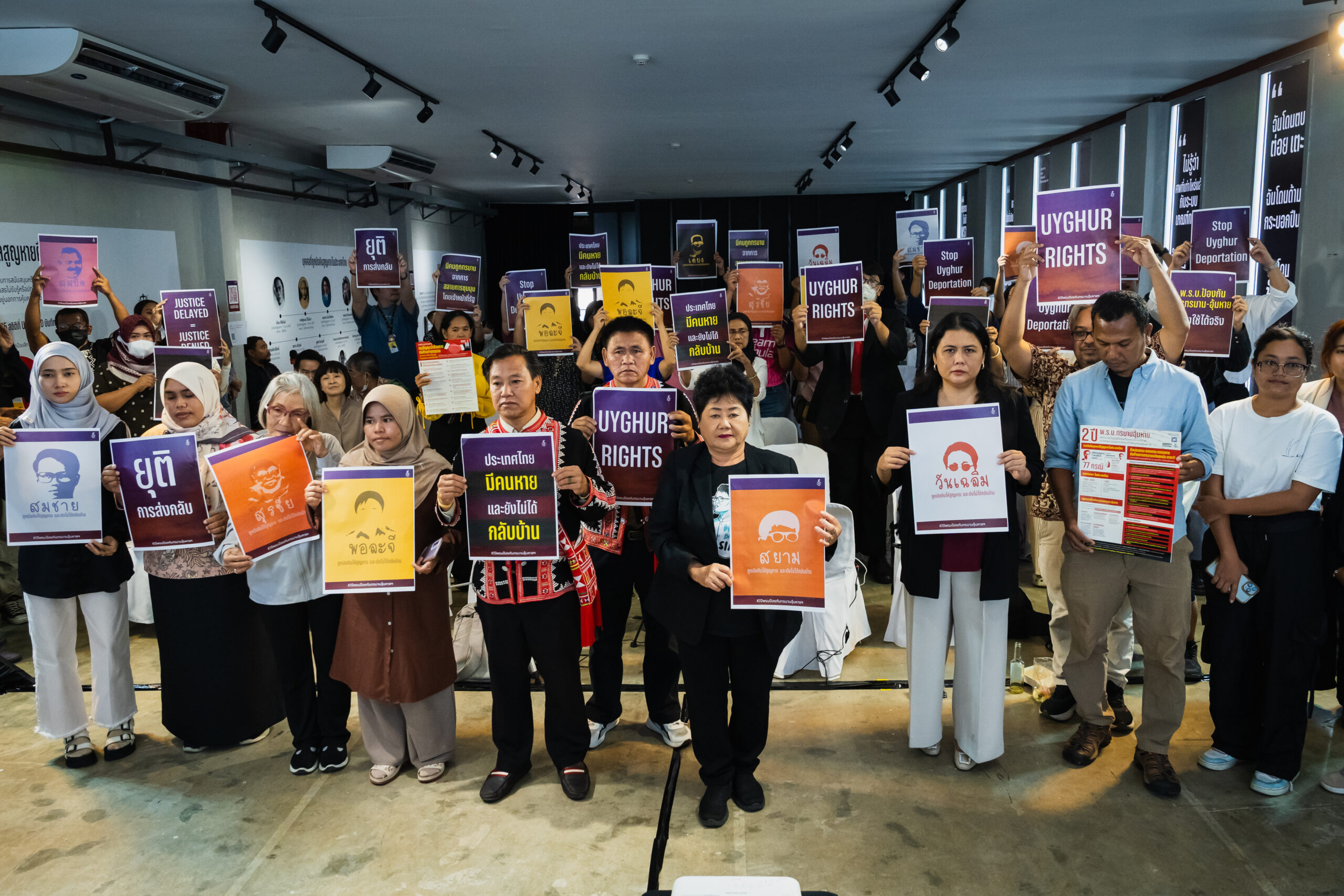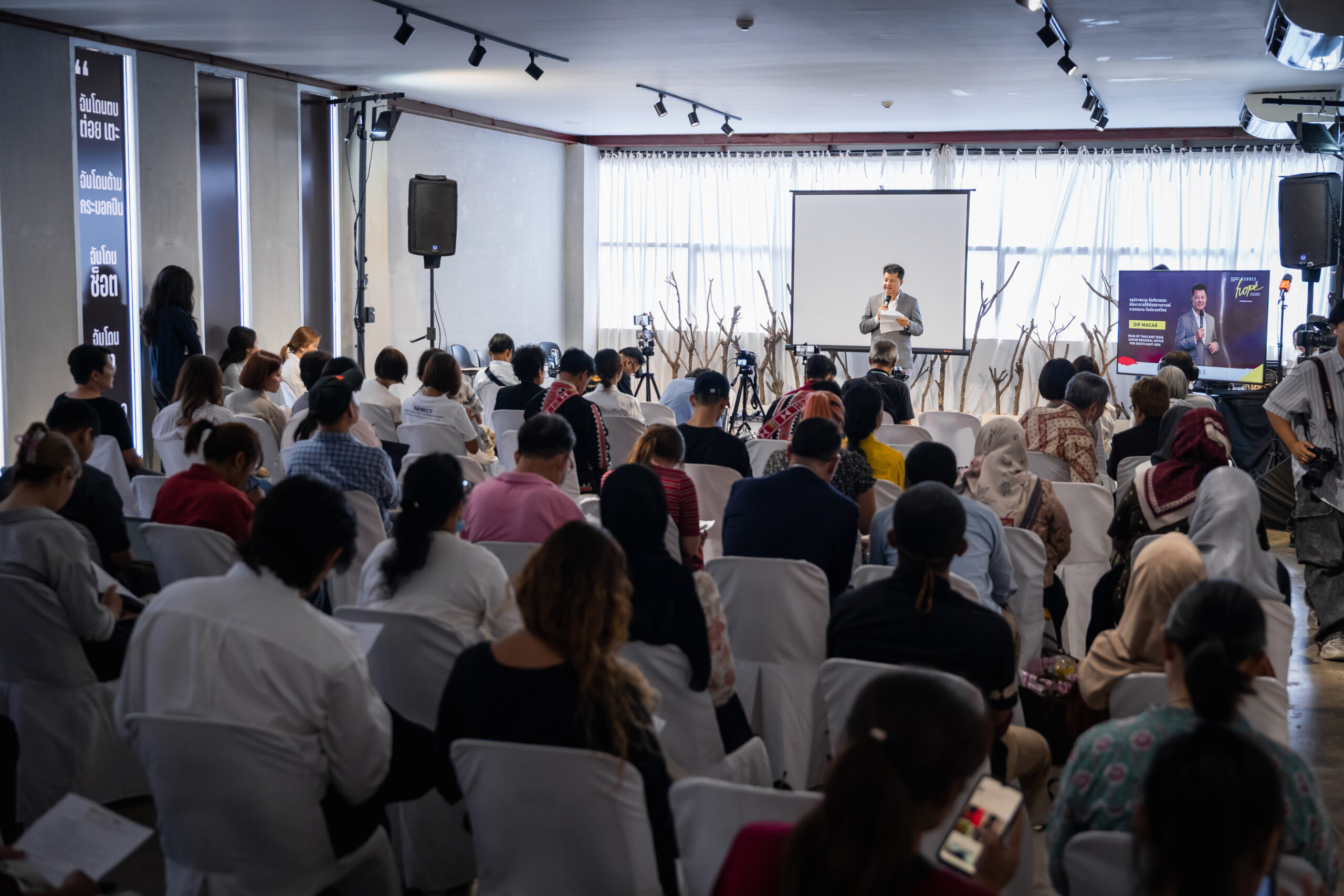On 28 February 2025, the ICJ co-hosted a roundtable consultation with 26 victims and families of victims of torture, ill-treatment and enforced disappearance in Thailand. Two years after the adoption of the Prevention and Suppression of Torture and Enforced Disappearance Act (the Act), participants discussed their concerns and put forward recommendations to the government on how to address the situation. On 1 March, more than 140 people attended a public event on the same theme.
“After the Act came into effect, nothing happened. Everything went silent. I believe that if the authorities were truly committed, they could have achieved results within two years in providing remedies and support to victims,” said Kanya Theerawut, mother of missing activist Siam Theerawut.
“Siam disappeared five years ago, and no one helped searching for him”, added Kanya Theerawut, illustrating the failure of the Thai authorities to comply with their obligation to promptly and effectively investigate enforced disappearances and to search for the disappeared person.
Another case discussed was that of military conscript Kittithorn Wiangbanpot, who died on 16 July 2023 of septicemia following injuries sustained during a military training exercise. His case became the first-ever under the Act to reach the courts in Thailand in December 2023. However, more than a year after it was submitted, justice has still not been served. His wife, Kaewkanya Saelee, told participants:
“Before dying he said to me that he had seen how inhumane the military trainers were, and he was scared. If we had reported them to someone who could have helped remove Kittithorn from that situation, he wouldn’t have ended up this way,” said Kaewkanya Saelee.
“Now that the court is about to hand down its decision in the case, the military has requested that it be transferred to a military court, even though the only remaining step is for the court to announce its decision. So, now, I don’t know whether the case will remain in the civilian court or be transferred to the military court,” added Kaewkanya Saelee.
Prompted by the discussions, 26 victims and families of victims addressed a joint letter to key executive, legislative and judicial authorities—including the Minister of Justice and the President of the Supreme Court—outlining the challenges they have faced since the Act’s adoption two years ago and making recommendations on how to improve the situation. Many of the concerns highlighted in the letter, including shortcomings in the Act and the failure to promptly ensure justice and remedies, aligned with those raised by the ICJ on 21 February 2025, calling for the effective enforcement of the Act.
Discussions on both days also focused on the recommendations issued by the UN Committee Against Torture (CAT) to Thailand on 9 December 2024 in its Concluding Observations and their relevance to Thailand’s current situation.
“The UN Committee highlighted the lack of progress in investigating and prosecuting individuals suspected of committing torture, ill-treatment or enforced disappearance as one of the most significant and persistent concerns two years after the Act’s adoption. The Committee also expressed concern over the lack of redress, fair and adequate compensation, and access to full rehabilitation for victims,” said Sanhawan Srisod, ICJ’s Legal Adviser, during the public panel on 1 March 2025.
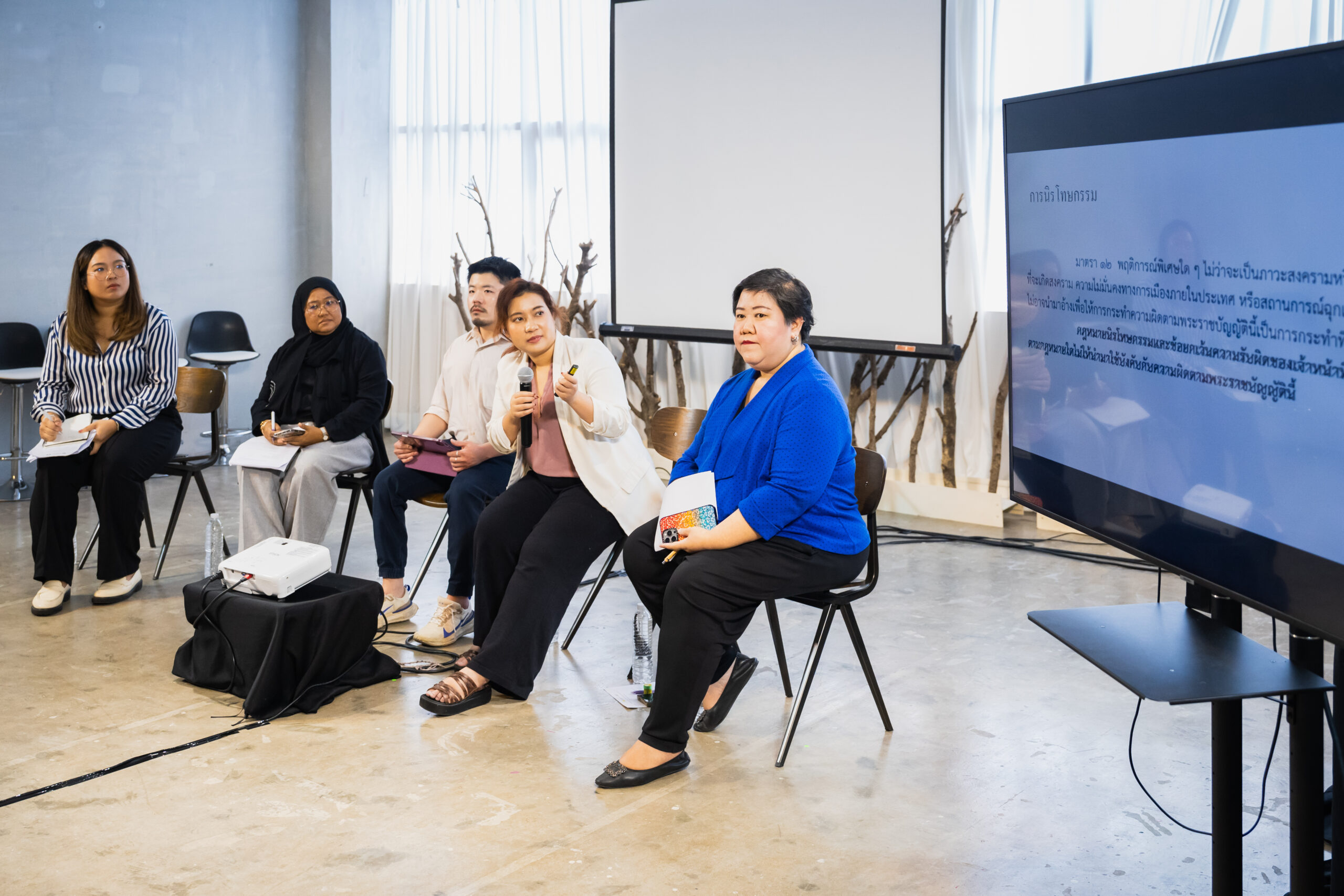
Other experts highlighted key recommendations from the Committee, addressing issues such as impunity, the lack of fundamental legal safeguards in the context of certain forms of deprivation of liberty, allegations of torture, ill-treatment, enforced disappearances and gender-based violence.
Background
The ICJ made two submissions to the UN Committee Against Torture ahead of its review of Thailand’s second periodic report:
The discussion on 28 February 2025 was co-hosted by: Amnesty International Thailand; Cross-Cultural Foundation; the Standing Committee on Legal Affairs, Justice, Human Rights of the House of Representatives; the World Organization Against Torture; and the Office of the United Nations High Commissioner for Human Rights Regional Office for South-East Asia.
On 1 March 2025, the event featured two panel discussions, a short film screening, and an art session performance.
The first panel focused on the key outcomes of the UN Committee Against Torture’s review of Thailand’s periodic report under the Convention. Speakers included: Sanhawan Srisod, ICJ; Chanatip Tatiyakaroonwong, Amnesty International; Anchana Heemmina, Duayjai Association for Humanitarian Affairs; and Nareeluc Pairchaiyapoom, Director of the International Human Rights Division, Ministry of Justice.
The second panel reflected on the two years since the adoption of the Act. Speakers included: Kanya Theerawut, mother of Siam Theerawut; Somchai Homlaor, committee member under the Anti-Torture and Enforced Disappearance Act; Ponpimol Mukkhuntod, Cross-Cultural Foundation; and Kaewkanya Saelee, wife of Private Kittithorn Wiangbanphot.
The event on 1 March was co-hosted by: Amnesty International Thailand; Cross-Cultural Foundation; the Standing Committee on Legal Affairs, Justice, and Human Rights of the House of Representatives; and Duayjai Association for Humanitarian Affairs.
Watch
The live recording of the public event can be accessed via: Panel 1 Panel 2
